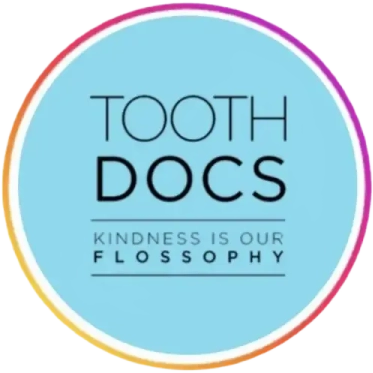Gum Disease Treatments
Gum disease is a common oral health issue that affects millions of people worldwide. From mild inflammation to severe infection, gum disease can wreak havoc on your oral hygiene and overall well-being. But fear not! There are various treatment options available to combat this pesky problem.

Types of Treatment for Gum Disease
Gum disease is a common oral health issue that affects millions of people worldwide. If left untreated, it can lead to serious complications such as tooth loss and even systemic health problems. Thankfully, there are several types of treatment available to combat gum disease and restore oral health.

Non-Surgical Treatments
When it comes to gum disease, prevention is key. But if you find yourself already dealing with the early stages of gum disease, there are non-surgical treatments available that can help halt its progression and restore your oral health.
- Scaling and root planing: One popular non-surgical treatment for gum disease is scaling and root planing. This deep cleaning procedure involves removing plaque and tartar from below the gumline and smoothing out rough areas on the tooth roots. By eliminating these bacteria-laden deposits, inflammation can be reduced, allowing the gums to heal.
- Antibiotic therapy: Another non-surgical treatment option is antibiotic therapy. Antibiotics may be prescribed in various forms - mouth rinses, gels, or oral tablets - to target and eliminate harmful bacteria causing infection in the gums.
- Antimicrobial mouthwash: In some cases, a dental professional might recommend an antimicrobial mouthwash as part of your non-surgical treatment plan. These aids deliver medication directly to the affected area, helping to reduce bacterial growth.
Remember that every case of gum disease is unique, so it's essential to consult with a dental professional who will evaluate your specific situation and recommend suitable non-surgical treatments tailored just for you!
By taking action early on with appropriate non-surgical treatments like scaling and root planing or antibiotic therapy, you can effectively stop gum disease in its tracks before it progresses further! So don't wait until it's too late – take control of your oral health today!

Surgical Treatments
Surgical treatments are often recommended for severe cases of gum disease that cannot be effectively treated with non-surgical methods. These procedures are performed by periodontal specialists and aim to eliminate the infection and restore gum health.
- Flap surgery: One common surgical treatment for gum disease is called flap surgery or pocket reduction surgery. In this procedure, the gums are lifted back, and any tartar or plaque buildup is removed from the tooth roots. The dentist then smooths out any rough surfaces on the bone to prevent bacteria from returning.
- Bone grafting: Another surgical option is bone grafting, which involves replacing damaged or lost bone tissue with synthetic materials, your own bone from another part of your body, or donated bone. This helps to regenerate new bone growth and provides support for teeth that have been affected by advanced gum disease.
- Gum grafting: Gum grafting is another surgical technique used in treating gum recession caused by periodontitis. During this procedure, tissue is taken from elsewhere in your mouth (such as the roof of your mouth) and grafted onto areas where the gums have receded. This helps to cover exposed tooth roots and reduce sensitivity.
- Laser therapy: Laser therapy has also gained popularity as a minimally invasive surgical treatment for gum disease. It uses laser energy to remove infected tissue while leaving healthy tissue intact. Laser therapy can help kill bacteria and stimulate healing without requiring traditional incisions or sutures.

Conclusion
Taking care of your gum health is crucial for maintaining overall oral health. Gum disease can have serious consequences if left untreated, leading to tooth loss and even affecting your general well-being. Thankfully, there are various treatment options available to address gum disease.
Remember that prevention is always better than cure when it comes to gum disease. Practicing good oral hygiene habits like regular brushing with a soft-bristle toothbrush, flossing daily, using antibacterial mouthwash, and visiting your dentist regularly for check-ups can go a long way in preventing gum disease.
If you notice any signs or symptoms of gum disease, such as swollen or bleeding gums, tender gums, receding gums, bad breath, persistent bad taste in the mouth, chewing difficulties, or loose teeth, make sure to consult with your dentist promptly.
Don't ignore these warning signs, as early detection is key for successful treatment outcomes. It's essential to seek professional help at the earliest sign of trouble.
So go ahead – take that first step towards achieving the smile you've always wanted! To learn more about our dental services, visit us at 1044 Northern Blvd., Suite 106, Roslyn, New York 11576 or call our office at (516) 625-0088.
Locations
630 5th Avenue Suite 1815, New York, New York 10111
Phone: (212) 969-9490
Email: info.nyc@toothdocsdental.com
- MON - FRI9:00 am - 5:00 pm
- SAT9:00 am - 4:00 pm
- SUNClosed
1044 Northern Blvd., Suite 106, Roslyn, New York 11576
Phone: (516) 625-0088
Email: info.roslyn@toothdocsdental.com
- MON9:00 am - 6:00 pm
- TUE9:00 am - 5:00 pm
- WED9:00 am - 6:00 pm
- THU - FRI9:00 am - 5:00 pm
- SAT - SUNClosed








